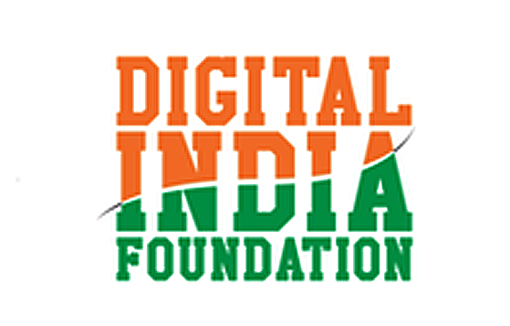- फेलिसिटी थिएटर इंदौर में "हमारे राम" प्रस्तुत करता है
- जेएसडब्ल्यू ग्रुप के चेयरमैन सज्जन जिंदल को एआईएमए मैनेजिंग इंडिया अवार्ड्स में मिला 'बिजनेस लीडर ऑफ डिकेड' का पुरस्कार
- उर्वशी रौतेला 12.25 करोड़ रुपये में रोल्स-रॉयस कलिनन ब्लैक बैज खरीदने वाली पहली आउटसाइडर इंडियन एक्ट्रेस बन गई हैं।
- Urvashi Rautela becomes the first-ever outsider Indian actress to buy Rolls-Royce Cullinan Black Badge worth 12.25 crores!
- 'मेरे हसबैंड की बीवी' सिनेमाघरों में आ चुकी है, लोगों को पसंद आ रहा है ये लव सर्कल
Need for Regulation & supervision of Advertisement and Playstore Operations and Platform fees as ‘Critical IT intermediaries’

New Delhi. The Aatmnirbhar Digital India Foundation (ADIF), an industry body representing India’s digital and technology startups, deliberated on the need for an India specific policy framework IT intermediaries for Playstore, Search, and rankings.
The esteemed panel constituted of Ramesh Abhishek, Retd IAS, Ex-Secretary, DPIIT, Co-Founder and Group CEO, MakeMyTrip, Murugavel, Founder & CEO, Matrimony.com, Rohan Verma, CEO, MapmyIndia and Ajay Data, Founder and CEO, Data Xgen Technologies, who is also Secretary General, ADIF.
The deliberations revolved around the need for government’s intervention to ensure that no organization specific keywords were permitted for bidding by third parties in Google Ads policy. This has come in the wake of Delhi HC order in favour of Makemytrip where the Court directed Google to suspend the advertising account of HappyEasyGo on the Google Ads Programme.
Murugavel Jankiraman, Founder & CEO, Matrimony.com while speaking at the panel discussion said, “Stop Google monetizing the brands of Indian companies. Brands are created with so much hardwork, years or decades of effort, built by hundreds or thousands of people, marketed by spending 100’s of crores of investment. All the effort is monetizing by Google by allowing anyone and everyone to bid for these brands. Companies end up in spending crores of money to protect their own brands to prevent their customers going to competitors or frivolous entities. Companies are losing their revenue and customers because of Google not protecting brands.”
Ashim Sood, Supreme Court, Advocate said, “India has a robust intellectual property law regime which gives protections to entrepreneurs who have worked hard to create brand recognition for their products and services. Similarly, Indian courts are sophisticated in their understanding of issues including the problems raised by keywords based advertising. But judicial delays sometimes come in the way of an entrepreneur being able to protect his mark to the fullest extent – many times the fact of whether a trademark was violated comes down to evidence, and this evidence only becomes available in a trial that lasts years. This coupled with the dominance of Google in the search market renders local entrepreneurs vulnerable. There does need to be a discussion based regulatory initiative to deal with the issue.”
Ramesh Abhishek, Ex-Secretary, DPIIT said “It is essential to take adequate measures to promote Indian Digital ecosystem and work towards improving ease of doing business. It is needed to undertake in-depth study of the impact of permitting the bidding of brands by competition and benefits obtained by advertisement platforms. Neutrality and unbiased behaviour of large platforms in search and playstore results and rankings is important for ensuring a level playing field”
Rohan, CEO, MapmyIndia said, “Need of immediate, effective regulatory and legal measures to stop monetizing ‘brand value’ by Advertisement and search platform of Big Techs. Every efforts should be made to eliminate any bias and manipulation in the search and ranking algorithms attributing to advertisement keywords, to eliminate any loss to brands”.
Ajay Data, ADIF Secretary General Ajay Data said, “At ADIF, we represent the aspirations and interests of India’s dynamic startup ecosystem. To protect the interests of Indian startups, we need to create an India specific policy framework and work in a collaborative manner going forward. We request government that no organization specific keywords should be permitted for bidding by third parties and ASCI guidelines should be expanded to cover search engine advertising to avoid such in future.”
In line with ADIF’s objective of playing a role in policy framework, the power packed panel brainstormed on the topic – ‘Protection of Your Organization, Brand Name and IPR for online bidding on advertisement platforms.’ ADIF, which is committed towards building an open, fair, neutral and self-reliant technology ecosystem, aims to promote a level playing field for Indian companies to build solutions for the country that are adopted globally.
Owing to unfair policies by leading Big Tech platforms, the usage and bidding on company name specific keywords such as Matrimony, Map My India is allowed. This has resulted in other companies selling similar products and services to capitalize on the brand value of the companies, putting existing companies at a greater disadvantage. To feature at the top of the search results, Indian startups have shell out extra money to safeguard their own company name that was being used as keywords.
Through such discussions, ADIF aims to assist in the creation of forward-looking regulatory processes and ease of doing business policies to propel India as the top destination for innovation and capital. The objective is to listen and understand the challenges of the startup ecosystem and to become the voice of entrepreneurs for policymakers and regulators.
This is in line with ADIF’s vision is to make India a world leader in the technology ecosystem by ensuring a level playing field for Indian organisations and to enable the flow of Indian and international investments to build products and services for Indian and global consumers.


